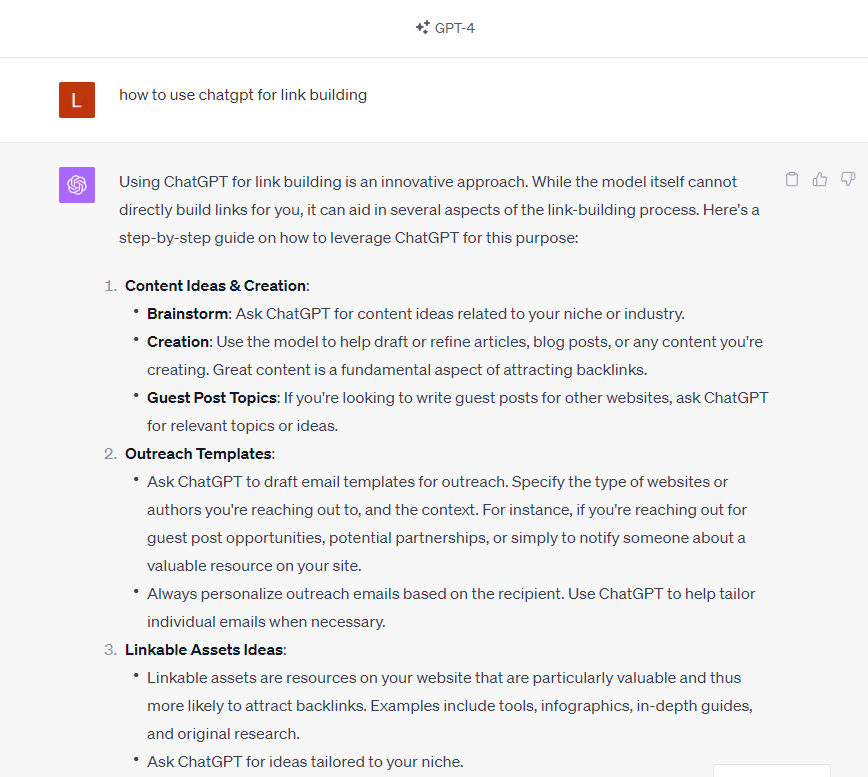Imagine a world where marketing becomes more personalized and engaging than ever before. With the advent of ChatGPT, this vision is now within reach. ChatGPT, an advanced language model developed by OpenAI, has the potential to revolutionize the field of marketing. By harnessing the power of artificial intelligence, marketers can employ ChatGPT to create dynamic and interactive conversations with their target audience, leading to enhanced customer experiences and increased brand loyalty. In this article, we will explore how ChatGPT can transform the marketing landscape and open up new avenues for businesses to connect with their customers.

This image is property of pixabay.com.
Understanding ChatGPT
What is ChatGPT?
ChatGPT is a state-of-the-art language model developed by OpenAI, designed to engage in conversational interactions with users. It is powered by advanced natural language processing techniques and machine learning algorithms, making it capable of understanding and generating human-like responses.
How does ChatGPT work?
ChatGPT works by using a neural network architecture called the Transformer. The model is trained on a large corpus of text data, allowing it to learn patterns, semantics, and syntactical structures of human language. Through a process called unsupervised learning, ChatGPT can generate coherent and contextually appropriate responses based on the input it receives.
Benefits of ChatGPT
ChatGPT offers several benefits for marketers looking to enhance their marketing strategies and improve customer interactions. Firstly, it provides an opportunity to engage with customers in real-time, providing personalized responses to their queries. Additionally, ChatGPT can automate repetitive tasks, freeing up human resources for more complex and creative endeavors. It also has the potential to improve customer experience, drive sales, and gather valuable market insights.
Applications of ChatGPT in Marketing
Improved Customer Engagement
With ChatGPT, marketers can engage customers in meaningful and personalized conversations. It can answer queries, provide product information, and offer assistance, creating a seamless and interactive experience for the customer. By engaging customers directly, businesses can build stronger relationships and foster brand loyalty.
Enhanced User Experience
By integrating ChatGPT into websites or mobile applications, marketers can improve the overall user experience. Chatbots powered by ChatGPT can guide users through processes, provide recommendations, and offer assistance, enhancing usability and reducing friction. This leads to higher customer satisfaction and increased retention.
Personalized Marketing Campaigns
ChatGPT enables marketers to create personalized marketing campaigns at scale. By understanding customer preferences and behavior, ChatGPT can generate tailored recommendations, offer relevant promotions, and suggest products or services that align with the customer’s interests. This level of personalization drives engagement and conversion rates.
Building a ChatGPT Marketing Strategy
Identifying Target Audience
To leverage ChatGPT effectively in marketing, it is crucial to identify the target audience. Understanding their needs, preferences, and pain points enables marketers to tailor the chatbot’s scripts and responses to meet their specific requirements. This ensures a more personalized and relevant experience for each customer.
Creating Engaging Chatbot Scripts
To maximize the potential of ChatGPT, marketers need to craft engaging chatbot scripts. The scripts should be conversational, appealing, and reflect the brand’s tone and personality. By understanding the customer’s journey and anticipating their queries or concerns, marketers can develop chatbot scripts that provide value and keep customers engaged.
Seamless Integration with Existing Channels
To achieve a coherent and integrated marketing strategy, it is important to seamlessly integrate ChatGPT with existing marketing channels. This includes incorporating the chatbot into websites, social media platforms, and customer support channels. By providing consistent and seamless interactions across channels, businesses can deliver a cohesive brand experience.
Leveraging ChatGPT for Lead Generation
Automated Lead Qualification
ChatGPT can streamline the lead qualification process by engaging with potential customers, collecting relevant information, and assessing their purchasing intent. By automating this process, marketers can identify high-quality leads more efficiently and allocate resources accordingly, improving overall lead generation efforts.
24/7 Lead Generation
Unlike traditional lead generation methods, ChatGPT can operate around the clock, providing assistance and addressing inquiries at any time. By capturing leads outside of traditional business hours, businesses can expand their reach and capture potential customers who prefer to engage during non-standard timings. This increases lead generation opportunities and enhances overall sales potential.
Customized Lead Nurturing
ChatGPT offers a unique opportunity for personalized lead nurturing. By understanding the needs and preferences of each lead, ChatGPT can deliver tailored content, recommendations, and follow-up messages. This automated lead nurturing process helps move leads through the sales funnel and fosters stronger relationships with potential customers.

This image is property of pixabay.com.
Driving Sales with ChatGPT
Conversion-focused Conversations
ChatGPT can actively drive sales by engaging customers in conversion-focused conversations. Through personalized recommendations, targeted promotions, and persuasive messaging, businesses can guide customers towards making a purchase. By understanding customer behavior and preferences, ChatGPT can provide relevant information that inspires confidence and motivates consumers to buy.
Real-time Product Recommendations
ChatGPT excels at generating real-time product recommendations based on customer needs and preferences. By leveraging purchasing history, browsing behavior, and demographic information, ChatGPT can suggest products or services that match the customer’s requirements. This proactive approach to sales increases the likelihood of upselling and cross-selling, thereby boosting revenues.
Closing Sales with Chatbots
ChatGPT-powered chatbots can play a crucial role in closing sales. By addressing customer concerns, providing additional information, and assisting with the purchase process, chatbots can remove friction and increase customer confidence. This seamless integration of ChatGPT in the sales process can lead to higher conversion rates and improved customer satisfaction.
Improving Customer Support with ChatGPT
Efficient Customer Query Handling
ChatGPT can significantly improve customer support by handling customer queries efficiently. By providing accurate and relevant responses in a timely manner, it reduces waiting times and minimizes frustration. This enhances the overall customer support experience, leading to higher customer satisfaction and retention rates.
Instant Troubleshooting Assistance
When customers encounter product or service issues, ChatGPT can provide instant troubleshooting assistance. By understanding the problem and offering step-by-step guidance, ChatGPT can help customers resolve their issues quickly and effectively. This proactive approach to support saves time and resources, resulting in a more positive customer experience.
24/7 Support Availability
One of the key advantages of ChatGPT is its ability to provide 24/7 support availability. Customers can reach out for assistance at any time, even outside of regular business hours. This round-the-clock support ensures that customers receive timely help, improving overall satisfaction and reducing the likelihood of negative customer experiences.

This image is property of pixabay.com.
Utilizing ChatGPT for Market Research
Real-time Customer Feedback
ChatGPT can be utilized to gather real-time feedback from customers. By engaging in conversations and asking targeted questions, ChatGPT can collect valuable insights regarding customer preferences, pain points, and expectations. This data can inform product development, marketing strategies, and overall business decisions.
Automated Surveys and Interviews
ChatGPT can automate the process of conducting surveys and interviews. By interacting with customers in a conversational manner, it can collect qualitative and quantitative data at scale. This eliminates the need for manual data collection and significantly streamlines the market research process, enabling businesses to make data-driven decisions more efficiently.
Identifying Market Trends
By analyzing large volumes of customer interactions, ChatGPT can identify emerging market trends. Its ability to understand context and generate coherent responses allows it to extract insights from customer conversations, social media interactions, and support queries. This real-time trend analysis helps businesses stay ahead of their competitors and adapt their marketing strategies accordingly.
ChatGPT for Social Media Marketing
Automated Social Media Engagement
ChatGPT can automate social media engagement by responding to customer comments, messages, and inquiries in real-time. By providing immediate and personalized responses, businesses can enhance their social media presence and foster stronger connections with their audience. This automated engagement also ensures timely response rates and improves overall brand reputation.
Content Creation Assistance
ChatGPT can assist marketers in generating content for their social media platforms. By suggesting relevant topics, offering writing prompts, and even crafting catchy captions, ChatGPT can save time and inspire creativity. Marketers can leverage ChatGPT to create engaging and shareable content that resonates with their target audience.
Intelligent Social Listening
ChatGPT can actively listen to and analyze social media conversations, extracting valuable insights about customers’ perceptions, sentiment, and preferences. This allows businesses to monitor public opinion, identify emerging trends, and adjust their marketing strategies accordingly. With ChatGPT’s ability to process large volumes of social media data, marketers can gain a deeper understanding of their audience and make informed decisions.

Ethical Considerations for ChatGPT in Marketing
Ensuring Privacy and Data Security
When using ChatGPT in marketing, it is crucial to prioritize privacy and data security. Marketers should implement robust data protection measures, obtain necessary consents, and handle customer data responsibly. It is important to be transparent about data usage and ensure compliance with relevant privacy regulations to build trust with customers.
Transparency and Disclosure
To maintain ethical marketing practices, it is essential to be transparent about the use of ChatGPT. Customers should be informed when they are interacting with a chatbot powered by ChatGPT and understand the limitations and capabilities of the system. Transparency builds trust and helps manage customer expectations, fostering positive brand-customer relationships.
Guarding Against Bias
While ChatGPT is a powerful tool, there is a potential for bias in its responses. Marketers must be vigilant in monitoring and addressing any biases that may emerge. Training data should be diverse and inclusive, and continuous evaluation of the system’s outputs can help identify and rectify biased responses. By actively combating bias, businesses can ensure fair and equitable interactions with customers.
Future Trends and Challenges in ChatGPT Marketing
Advancements in Natural Language Processing
As natural language processing continues to advance, ChatGPT’s capabilities are expected to improve. This includes better context understanding, more nuanced responses, and enhanced dialogue management. Marketers can anticipate more sophisticated and human-like interactions with customers, allowing for even greater personalization and customer engagement.
Interacting with Multilingual Customers
As businesses cater to an increasingly diverse customer base, ChatGPT’s ability to interact with multilingual customers becomes crucial. Marketers can leverage ChatGPT’s translation capabilities to provide support in different languages, breaking down language barriers and reaching a wider audience. This opens up new market segments and fosters inclusivity in customer interactions.
Monitoring and Training ChatGPT
Continuous monitoring and training of ChatGPT are essential to maintain its effectiveness in marketing. Due to its learning capabilities, ChatGPT needs to be regularly updated and supervised to ensure accurate and appropriate responses. Marketers should actively monitor customer interactions and address any potential issues or limitations to optimize the performance of ChatGPT in marketing strategies.
In conclusion, ChatGPT offers numerous applications and benefits for marketers. From improving customer engagement to driving sales, enhancing customer support to conducting market research, ChatGPT has the potential to revolutionize marketing strategies. By leveraging its capabilities and addressing ethical considerations, businesses can unlock new opportunities and create more meaningful and personalized experiences for their customers. The future holds exciting possibilities for ChatGPT’s role in marketing, and staying at the forefront of these advancements will be crucial for organizations aiming to excel in the ever-evolving digital landscape.





